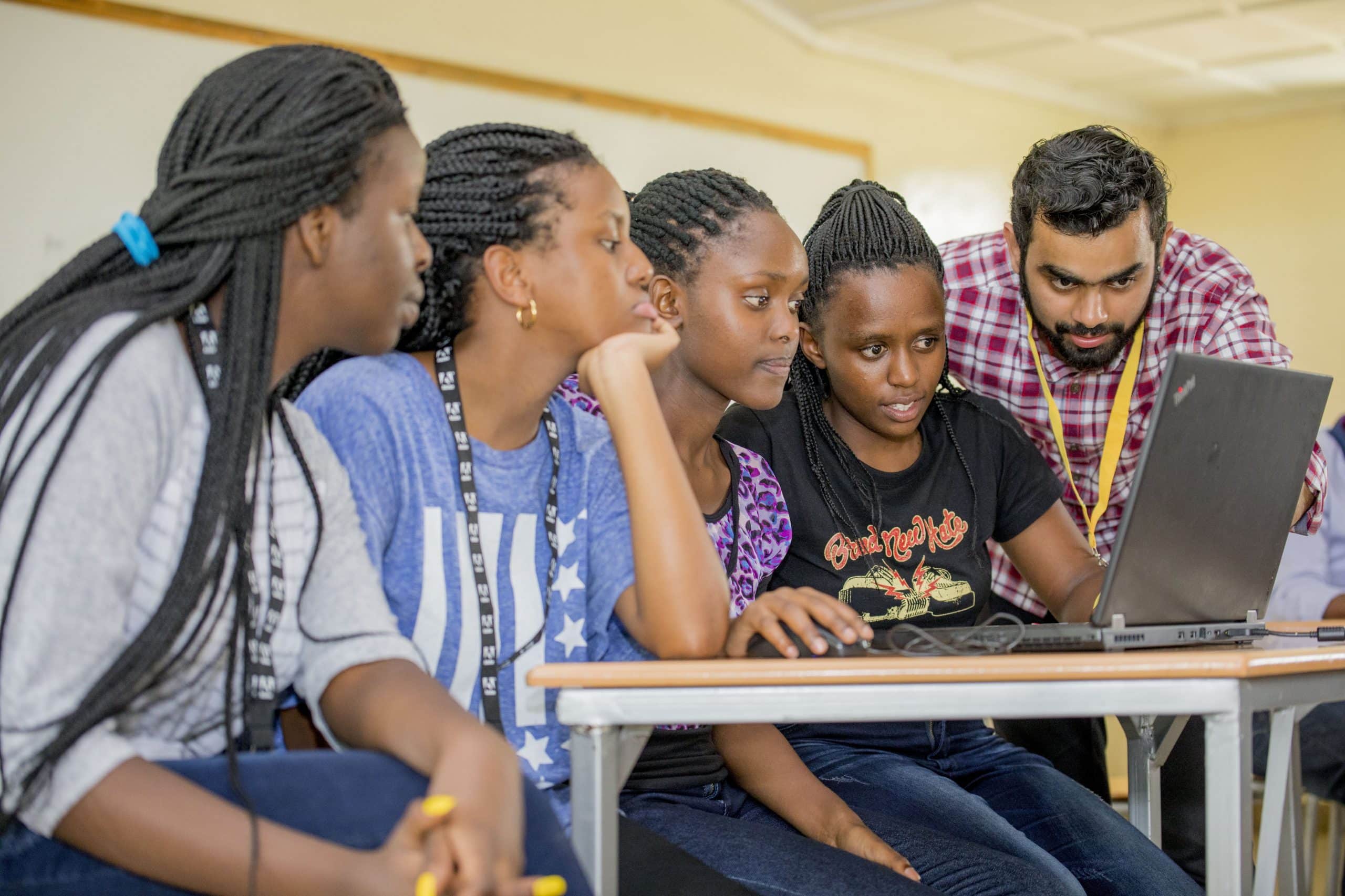Goal: Support Gashora Girls Academy of Science and Technology (GGAST) in Rwanda as they provide students and educational leaders with the tools and information they need to adjust to remote learning in wake of COVID-19.
Background: In Rwanda, 97% of girls go to primary school, but less than 34% attend upper secondary school, and then, only 8% graduate. Secondary school capacity is limited, allowing only girls with the highest test scores to attend. Even for a bright girl who is qualified to attend, she may face obstacles to success and graduation – including household responsibilities, family support, and/or safety concerns.
Partner: Sitting under Rwanda Girls Initiative (RGI), Gashora Girls Academy of Science and Technology (GGAST) is an upper-secondary girls’ boarding school located in the Bugesera District, an hour south of the capital city of Kigali. The school is dedicated to educating and empowering girls of Rwanda to reach their highest potential. As a STEM (Science, Technology, Engineering, Math) school, GGAST has an unwavering commitment to excellence and innovation in nurturing students to become national leaders.
Project: This December, 10 corporate volunteers from NetApp will be virtually supporting GGAST. During the project, the team will support GGAST teachers and Heads of Schools from around Rwanda to adjust to remote learning and plan for the future successful implementation of EdTech in their schools. The team will:
- migrate GGAST’s curriculum platform so that students across Rwanda can have free access
- support GGAST in hosting a virtual ICT in Education Leadership Seminar for other Rwandan Heads of Schools and teachers to emphasize the importance of EdTech and project-based learning
- provide mentorship in creating apps as well as produce a curriculum for an app-creation club to inspire and train future teachers and students
